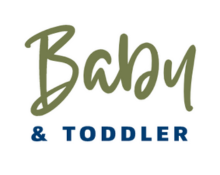
When it comes to drugs and breastfeeding, it’s important to exercise caution and consult with your healthcare provider. The transfer of drugs into breast milk can vary depending on the specific medication, its dosage, and your baby’s age and health. Here are some general guidelines to consider:
Consult your healthcare provider: Before taking any medication while breastfeeding, consult with your healthcare provider, such as your doctor or a lactation consultant. They can provide individualized advice based on your specific situation and recommend medications that are safe to use while breastfeeding.
Consider the risk-benefit ratio: When evaluating the use of a medication while breastfeeding, consider the potential benefits it provides to you versus the potential risks it may pose to your baby. In some cases, the benefits of treating a medical condition may outweigh the potential risks associated with breastfeeding while taking medication.
Choose medications compatible with breastfeeding: Many medications are considered safe for use during breastfeeding. Opt for medications that are well-researched and have a known safety profile in breastfeeding mothers. Your healthcare provider can guide you in selecting appropriate medications that have minimal impact on your milk supply and your baby’s health.
Timing of medication administration: Depending on the medication, the timing of breastfeeding sessions may need to be adjusted to minimize the exposure of your baby to the drug. Some medications may be best taken immediately after breastfeeding to allow for a longer period of drug clearance from your body before the next feeding.
Monitor your baby: Pay attention to any changes in your baby’s behavior or health while taking medication. Watch for signs of adverse effects, such as excessive drowsiness, poor feeding, or unusual irritability. If you notice any concerning symptoms, contact your healthcare provider immediately.
Be cautious with over-the-counter drugs and supplements: Even over-the-counter medications and herbal supplements can have effects on breastfeeding. Always check with your healthcare provider before using any non-prescription drugs or supplements.
Avoid recreational drugs and excessive alcohol: Recreational drugs and excessive alcohol consumption can be harmful to your baby’s health and are best avoided while breastfeeding. If you need support in addressing substance abuse, reach out to healthcare professionals who can guide you to appropriate resources.
Remember, every medication and individual situation is unique, so it’s crucial to seek personalized advice from your healthcare provider. They can help you make informed decisions that prioritize both your health and the well-being of your breastfeeding baby.
